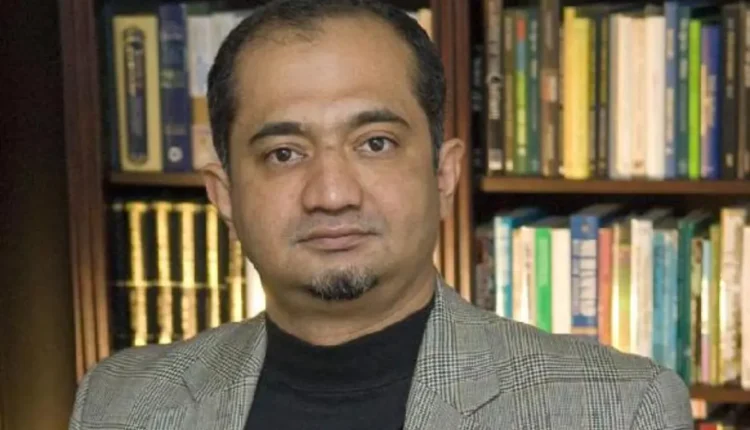Dr. Muqtedar Khan, a distinguished scholar, and a beacon of intellectual enlightenment. Born in 1966 in Hyderabad, India, Muqtedar Khan embarked on a remarkable journey that would lead him to become a trailblazer in the fields of political science, international relations, and Islamic studies.
Muqtedar Khan’s academic odyssey culminated in a Ph.D. from Georgetown University, where he delved into the intricacies of international relations, political philosophy, and Islamic political thought. Armed with a formidable intellect and a steadfast commitment to scholarship, Khan embarked on a mission to bridge the gap between tradition and modernity, faith and reason, East and West.
Champion of Change
At the University of Delaware, Muqtedar Khan established himself as a transformative force, founding the Islamic Studies Program and fostering dialogue on critical issues facing Muslim societies.
His advocacy for the empowerment of women within Islamic contexts and his unwavering commitment to independent thought have earned him acclaim as a progressive voice in the Muslim world. Khan’s vision transcends mere academic discourse; it is a call to action, a summons to embrace the principles of tolerance, inclusivity, and social justice.
A Voice for the Voiceless
Muqtedar Khan’s influence extends far beyond the confines of academia. He has testified before esteemed bodies such as the US Senate Foreign Relations Committee and the US House Armed Forces Committee, lending his expertise to matters of global significance.
As a prolific writer for prestigious publications like The Washington Post and Newsweek, Khan fearlessly tackles issues of radicalism, conservatism, and Islamophobia, challenging conventional wisdom and sparking vital conversations.
Courage Amid Controversy
Muqtedar Khan’s unwavering commitment to truth and justice has not been without its controversies. His outspoken critiques of radicalism, conservatism, and Western foreign policies have drawn both admiration and ire. Yet, Khan remains undeterred, steadfast in his conviction that dialogue, understanding, and mutual respect are the cornerstones of progress.
Shaping the Future
In his seminal work, “Islam and Good Governance: A Political Philosophy of Ihsan,” Muqtedar Khan charts a bold new course for governance rooted in Sufi philosophy.
Rejecting the coercive imposition of Sharia law, Khan advocates for governance guided by the principles of love, freedom, and inclusivity. His vision for a more just and equitable world resonates deeply in an era marked by division and discord.
Legacy of Inspiration
Muqtedar Khan’s legacy is not confined to the ivory towers of academia; it is writ large in the hearts and minds of those who strive for a better world.
As the Academic Director of the State Department’s American Foreign Policy Institute and a Senior Fellow at the Center for Global Policy, Khan continues to shape the discourse on issues of global importance. His tireless advocacy for peace, understanding, and social justice serves as a beacon of hope in an often turbulent world.
Embracing Diversity, Envisioning Unity
Muqtedar Khan’s journey from Hyderabad to the hallowed halls of academia is a testament to the transformative power of education, dialogue, and compassion.
In a world fraught with division and discord, Khan stands as a living embodiment of the ideals he espouses: tolerance, inclusivity, and the relentless pursuit of truth. His is a legacy that transcends borders, cultures, and creeds—a legacy of inspiration, enlightenment, and hope for a brighter tomorrow.
Also Read: Farah Pandith: The Impact on Diplomacy and Academia

